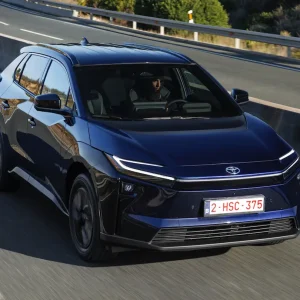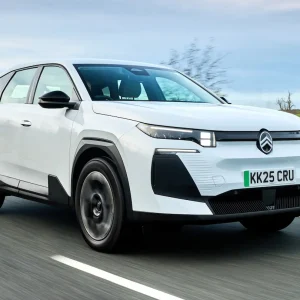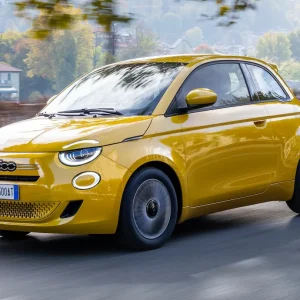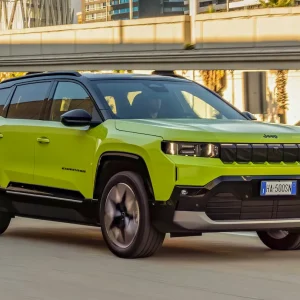The logic behind buying a big SUV like Audi’s Q7 is you’re effectively getting two cars for the price of one.
One minute it’s mum or dad’s taxi (more like tank) bussing kids, hounds and bikes around – the next, after a quick Hoover, it’s shuttling you and your colleagues in sharp suits to a business meeting where first impressions are everything.
Effortlessly blending an exec saloon with an MPV and adding some helpful all-weather ability, the seven-seat Q7 is all the car an active, outdoorsy, big family will ever need – or it was, but in recent years it’s been more difficult to justify with its thirst for fuel and uncompetitive BIK.
Audi understands and has pensioned the ancient, ten-year old Q7 off and replaced it with an all-new one.
With over 500k global sales and between 3000-6000 sold here annually (with a third bought by business) the German car-maker cannot afford to get the Q7 wrong.
Weighing in an incredible 325kg less than the old model if the third row’s deleted (a no-cost option), the significantly lighter, new car is a dramatic improvement.
Based on an all-new stiffer and lighter platform that will also underpin the Porsche Cayenne and Bentley Bentayga, Audi claim the new Q7’s ride and drive have been transformed.
Performance too, is in another league. Ignoring Volvo XC90’s recent example of downsizing to small capacity four-cylinder engines, Audi, initially, will offer just one engine – a heavily revised big 3.0-litre V6 TDI diesel with 272hp (a lower powered, more efficient 218hp versions follows on later).
This gives it class-leading get-up-and-go with 0-62mph taking just 6.5 seconds.
Despite the big power, fuel consumption isn’t bad. The big Audi averages a decent 47.9mpg, although that’s still enough to land business users with a painful 28% monthly BIK tax bill via emissions of 153g/km. An ULEV plug-in hybrid version of the Q7 should cure that, coming early next year with a 46g/km emissions figure, but what it won’t do is brighten up the experience behind the Audi’s wheel.
Put simply, even with all-wheel steer (£1100), a Range Rover Sport is far more engaging and agile, with less body lean. That said, the Sport is nowhere near as quiet or comfortable compared to a Q7’s riding on optional air suspension (£2650, includes other options.)
Which brings us to the sticky subject of those extras – there’s lots of them and care is needed to avoid adding another £10k to the P11D.
It’s too early for a costs comparison but we’re willing to wager the Audi will beat all its rivals and win more friends with senior execs and company bosses who want one car to do it all.
Audi Q7 3.0 TDI S line |
|
| Model price range | £50,340-£53,835 |
| Fuel consumption | 47.9mpg |
| CO2 (tax) | 153g/km (28%) |
| BIK 20/40% per month | £250/£500 |
| Service interval | 2yr/18,500 miles |
| Insurance (1-50) | XX group |
| Warranty | 3yrs/60,000 miles |
| Boot space | 770/1955 litres |
| Engine size/power | 2967cc/272hp |
| On sale | August 2015 |





